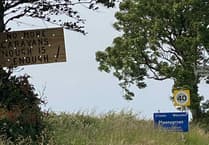Senedd members will next week vote on whether to introduce a £1.30-a-night tourism tax in Wales.
Politicians debated the proposal this week to iron out a number of amendments before a crunch vote is held on Tuesday evening, 8 July.
Senedd members voted on amendments to the tourism tax bill which would see £1.30 a person, plus VAT, charged on stays in hotels, B&Bs and self-catering accommodation.
A lower rate of 80p would apply to hostels and campsites, with the 22 councils in Wales given powers to decide whether to introduce a local levy from 2027 at the earliest.
During a two-hour “stage-three” debate, finance secretary Mark Drakeford told the Senedd it is likely the bill will operate in some parts of Wales but not others.
If passed as expected at the fourth-and-final stage next week, the bill would also establish a register of visitor accommodation providers with separate plans for licensing set to follow.
Sam Rowlands, the Conservatives’ shadow finance secretary, reiterated his party’s concerns about the proposals, with the tourism sector “united in its opposition to the bill”.
He told the Senedd: “The sector, particularly after covid, needs a government that understands it and encourages it – not one that imposes taxes that will drive people away. It’s a truth that whatever you tax, you get less of.”
Mr Rowlands said tourism is responsible for one in eight jobs and the multi-billion-pound sector pumps significant funds into the public purse through other taxes.
Conservative amendments aimed at removing powers in the bill for Welsh ministers to extend the tourism tax to berths and moorings were voted down.
Prof Drakeford replied: “They should be captured by the levy and the bill will allow that to happen,” with more work to be undertaken on cruise ships and yachts in future.
Mr Rowlands’ amendment to give councils flexibility to introduce either of the levy rates, rather than being required to bring in both or none, was voted down as were his calls for a “more proportional and fairer” percentage-based tax and an attempt to set the levy at 1p.
Prof Drakeford emphasised the importance of a broad base to the feasibility of the tax, explaining ministers decided against a percentage rate due to the added complexity. The former first minister rejected the “hokey, wrecking” amendment to set the rate at 1p.
Proposals for a tourism tax were part of the three-year cooperation agreement, between Plaid Cymru and the Welsh Government, which collapsed in May 2024.
Luke Fletcher reiterated Plaid Cymru’s support, describing the current tourism model as “overly extractive in nature which then puts considerable pressure on communities”.
The shadow economy secretary pointed to similar taxes in place across Europe and plans to introduce levies elsewhere in the UK. “This potentially unlocks investment,” he said.
Conservative calls for educational trips, young carers, veterans and people living in Wales to be added to exemptions to the tax were rejected by the Senedd.
Under 18s would be exempt from the lower rate under amendments agreed at an earlier stage, when Plaid Cymru calls for all under 16s to be exempt were voted down.
Warning of “mission creep”, Mr Rowlands proposed removing powers for councils to add a premium to the levy rate but his amendment was defeated.
Reacting to the debate on Tuesday, 1 July, Zoe Hawkins, MWT Cymru (Mid Wales Tourism) chief executive, said: "Last night, the Senedd rejected the amendment to collect and present registration data before being asked to make a decision on introducing a tourism tax for Wales. This is disappointing, as MSs are being asked to make a decision without crucial data or a full understanding of the potential impacts.
“Robust, evidence-led policymaking is vital, especially when rural communities and the wider visitor economy are already under immense strain. Policies like this could potentially have long-lasting and damaging consequences, as we saw with the 182-day rule, which was intended to target second homes. Instead, we are already seeing the evidence that it is harming genuine tourism businesses and farming families across Mid Wales, which the sector had previously warned was a likely outcome of the policy.
“These decisions must be properly reviewed and scrutinised as part of a joined-up approach, not taken in isolation. Unintended is not the same as unforeseen. Our politicians need absolute confidence that due diligence has been done when asked to make a decision on a policy which could have long lasting and potential unintended consequences particularly in rural areas.
“If the visitor levy is truly in the best interests of Wales, as it should be, taking the time to get it right isn’t just sensible, it’s vital."
Suzy Davies, MWT Cymru’s vice chairman, said: “This has long ceased to be a ‘tourism tax’ charging visitors for the privilege of a holiday in Wales. It is a fee for staying in visitor accommodation for any reason.
“Going to a funeral, going into hospital, visiting loved ones in hospital or care homes, giving evidence in court, even escaping domestic violence - you will have to pay. The list of exemptions or right to a refund remains pitifully short despite amendments put forward by some Senedd members.
“Visitor accommodation providers will have to be registered as a result of this legislation. This should help reassure visitors that properties are safe and legal, as well as providing a database of businesses which will be responsible for collecting the tax.
“Unfortunately, the Finance Secretary refused to compel councils to chase operators avoiding registration and collecting the tax so, once again, we see another burden which falls on the shoulders of businesses playing the game not gaming the system.
“I’m pleased to see that some local authorities have already indicated that they will not or have no plans to introduce the tax, including Pembrokeshire where tourism is an established part of the local economy and Wrexham which is actively growing tourism as part of their ambition to improve prosperity. This must give neighbouring counties pause for thought, especially in Mid Wales.
“This policy is built on the premise that all councils will participate and raise an unsubstantiated amount of money from an unknown number of visitor accommodation providers.
“With some already refusing to introduce a levy, no register of accredited businesses and an eye-watering predicted cost of the local and central administration of the legislation, there will be precious little money left to make any meaningful impact on improving the experience of residents or visitors.”
Councils would not be required to bring in the charge, but they will have the power to do so from 2027.
The Welsh Government says the levy could raise around £33million a year if adopted by local authorities across Wales.
Ceredigion County Council has previously said that no political decision has been made on this matter to date, with neighbouring Pembrokeshire County Council stating it would not introduce a levy.
With Labour and Plaid holding two thirds of seats, and barring a Leighton Andrews-style mishap, the bill as amended on July 1 is highly likely to be passed on 8 July.
No legal challenge is expected on the Senedd’s powers to pass the bill and, by convention, royal assent – formal approval from the monarch – is always forthcoming.



.jpeg?width=209&height=140&crop=209:145,smart&quality=75)

Comments
This article has no comments yet. Be the first to leave a comment.